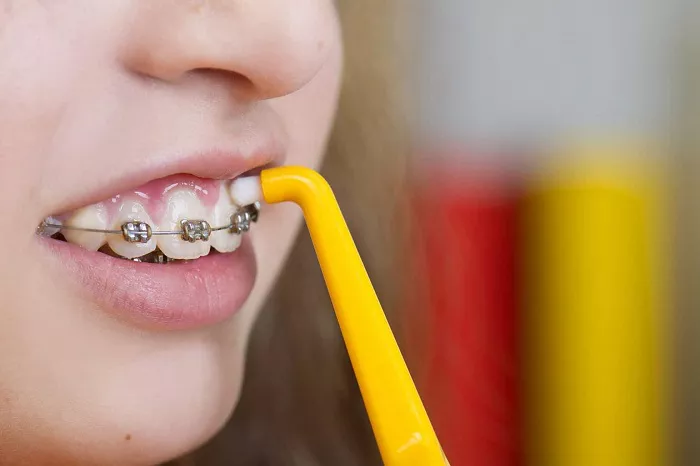In the pursuit of a straighter and more beautiful smile, many individuals turn to orthodontic treatment with braces. However, one crucial aspect that often comes into question is whether an orthodontist will clean the teeth before the braces are placed. This seemingly simple query holds significant importance in the overall success and health of the orthodontic process.
The Significance of Oral Hygiene in Orthodontics
Before delving into the specific practice of pre-braces teeth cleaning, it’s essential to understand the overarching role of oral hygiene in orthodontic treatment. When braces are affixed to the teeth, they create additional nooks and crannies where food particles and plaque can easily accumulate. If proper oral hygiene is not maintained, this can lead to a host of problems such as tooth decay, gum disease, and staining around the brackets. In fact, research has shown that patients with braces are at a higher risk of developing these dental issues compared to those without orthodontic appliances.
The Pre-Braces Dental Examination
Typically, an orthodontist will conduct a comprehensive dental examination prior to fitting braces. This examination serves multiple purposes. Firstly, it allows the orthodontist to assess the overall health of the teeth and gums. They will look for signs of existing cavities, gum inflammation, or any other dental problems that need to be addressed before commencing treatment. Secondly, it provides an opportunity to take accurate impressions and measurements of the teeth, which are essential for creating the customized braces. During this examination, the orthodontist will also evaluate the patient’s current oral hygiene habits and provide instructions on how to improve and maintain them during the course of the orthodontic treatment.
The Role of Professional Teeth Cleaning
In many cases, orthodontists do recommend a professional teeth cleaning before placing braces. This cleaning, often performed by a dental hygienist, has several benefits.
Removal of Plaque and Tartar:
Over time, plaque can harden into tartar, which is more difficult to remove through regular brushing and flossing. A professional cleaning uses specialized tools to thoroughly remove both plaque and tartar from the surfaces of the teeth, including those areas that are hard to reach at home. This not only gives the teeth a clean start but also reduces the risk of bacteria causing damage during the months or years that the braces will be in place.
Prevention of Decay and Gum Disease:
By eliminating the build-up of harmful bacteria and debris, the chances of developing cavities and gum infections are significantly decreased. For example, if there is already a small amount of decay present, it can be detected and treated during the cleaning process, preventing it from worsening under the braces.
Enhanced Bonding of Braces:
Clean teeth provide a better surface for the braces to adhere to. If there is a layer of plaque or debris on the teeth, it can interfere with the bonding process, potentially leading to loose brackets or braces that do not function as effectively. A thorough cleaning ensures that the brackets are firmly attached, which is crucial for the success of the orthodontic treatment.
Patient Education and Home Care Instructions
Even if a professional teeth cleaning is carried out before braces, it is equally important for the patient to understand and implement proper home care. The orthodontist or hygienist will provide detailed instructions on how to brush and floss effectively with braces. This may include using a special orthodontic toothbrush, flossing with threaders to reach under the wires, and potentially using fluoride mouthwashes to strengthen the teeth. The patient should be made aware of the importance of maintaining a consistent oral hygiene routine, as the braces can make it more challenging to keep the teeth clean. Regular follow-up appointments with the orthodontist will also include checks on the patient’s oral hygiene and any necessary adjustments to the home care regimen.
Exceptions and Special Considerations
While professional teeth cleaning before braces is a common and recommended practice, there may be some exceptions or special circumstances. For instance, if a patient has recently had a comprehensive dental cleaning at their general dentist and the teeth are in a relatively clean state, the orthodontist may determine that an additional cleaning is not immediately necessary. However, they will still emphasize the importance of maintaining good oral hygiene. In cases where a patient has severe gum disease or other complex dental issues, the orthodontist may work in conjunction with a periodontist or other dental specialists to address these problems first before proceeding with the braces. This could involve a more extensive course of treatment, such as scaling and root planing, to get the gums back to a healthy state.
Conclusion
In conclusion, the majority of orthodontists do recognize the value of cleaning teeth before placing braces. It is a proactive step that helps to safeguard the teeth and gums during the orthodontic treatment period, reducing the likelihood of complications and enhancing the overall success of the braces. By combining professional cleaning with comprehensive patient education and a commitment to good home care, patients can embark on their orthodontic journey with the best possible chance of achieving a healthy and beautiful smile. The process of getting braces is not just about the mechanical adjustment of the teeth; it is also about maintaining the highest standards of oral health throughout the treatment.

